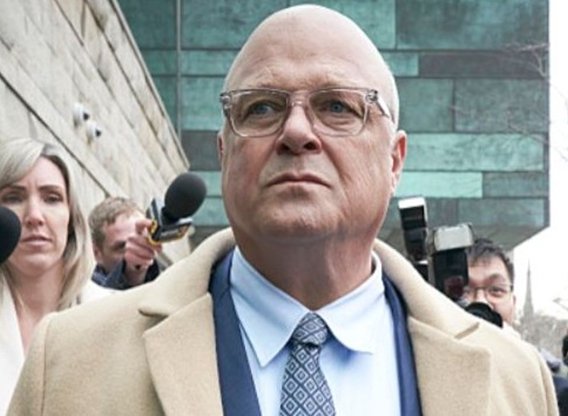In the olden days, primetime TV wasn’t into binges or serials or tangled story lines.
Often, it had anthology series. Some had hosts – Ronald Reagan, Rod Sterling, Loretta Young, Alfred Hitchcock, Old Ranger – and some didn’t; most had stories that were quick and self-contained.
Now comes a nod to the past. “Accused” (shown here) debuts after football Sunday on Fox, then settles into its spot at 9 p.m. Tuesdays. Each hour offers a separate courtroom trial, with ample flashbacks.
“An anthology, to me, is the perfect antidote to … ‘bingeing,’” producer Howard Gordon said.
He dislikes the word “binge” – watching lots of episodes in one gulp. Still, his previous show helped popularize it: “24” was so serialized that some people preferred to wait and see a whole season at once.
The “Accused” hours are the opposite. “They’re sort of stand-alone featurettes,” Michael Chiklis said.
He’s involved from two angles – starring (shown here) in the opening hour and directing a later one. “There was a huge difference in terms of tone and tenor” between the two hours, Chiklis said.
That may be helpful. Many viewers will find the opener (about 10 p.m. ET Sunday) — with Chiklis as the father of a troubled teen – devastating. Those same viewers might enjoy the second episode.
That one is from Marlee Matlin, an Oscar-winning actress, making her directing debut. “You’re constantly on the move,” she said of directing. “You’re never stopping.”
And it reflects Gordon’s interest in matching the director and the story:
— Matlin, who is deaf, directed a story with a deaf defendant.
— Billy Porter directed a story in which the defendant is a Black drag queen. It’s “a queer sort of story and they (were) actually calling a Black queer person to direct it,” he said.
— Tazbah Chavez, who is Navajo and Apache, started out as a writer who, Gordon said, was usually “the only woman in the room, or the only indigenous woman in the room.” That changed with the award-winning “Reservation Dogs”; now she’s directing an “Accused” episode about young activists.
“Three of our four leads were actually Navajo actors playing Navajo characters,” she said.
Chavez was given an idea about environmental activists, then adjusted it to fit a specific issue.
“There was a uranium spill in 1979 on the Navajo Nation that was the U.S.’s largest radioactive spill,” she said. It was “largely overlooked … There are still over 500 abandoned mines on the Navajo Nation that are very far from being cleaned up” plus plans for more, including one “that’s potentially going to happen near the Grand Canyon.”
She wrote and directed a story that has protesters, action-adventure and some key plot twists. It has little in common with the other “Accused” hours; that’s the charm of a TV anthology.
